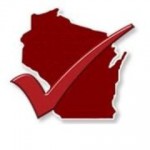November 13-17 is Winter Weather Awareness Week in Wisconsin
MADISON, Wis. – Wisconsin winters are great for outdoor activities, but the cold and snow can also pose serious dangers to the safety of everyone in the state. To help Wisconsin plan for the months ahead, Gov. Tony Evers has declared Nov. 13-17 Winter Weather Awareness Week in Wisconsin.
Staying informed is a critical part of being prepared for winter. Make sure to check in with the National Weather Service and other trusted local sources daily for forecasts. If heavy snow or ice is expected, prepare by stocking up on additional supplies, make sure you have an emergency kit at home and in your vehicle, and have a plan for what to do if you lose power at home.
According to the National Weather Service, Wisconsin experiences an average of three to six winter storms during the season. During the 2022-23 winter season, the highest one-day snowfall total in the state of 19.5 inches was reported on April 17, 2023 in Melrose in Jackson County. Bayfield in Bayfield County recorded 182.9 inches of snow last winter, giving it the highest seasonal snowfall total in the state. The coldest temperature recorded in Wisconsin last winter was -29 degrees Fahrenheit on Jan. 31, 2023 in Barron County near Ridgeland and again on Feb. 4, 2023 in Butternut in Ashland County.
Ice and snow on the roads remain a major threat to drivers throughout the state, causing thousands of motor vehicle crashes each year. Preliminary data from the Wisconsin Department of Transportation shows 41 people were killed and 3,573 were injured in the state during 2022 from crashes involving winter road conditions.
While driving in snow or ice, remain distraction-free and adjust your speed for current conditions. Use 511 Wisconsin to check travel conditions before you leave home. This information, along with live traffic cameras and traffic alerts, is accessible through the free 511 Wisconsin mobile app or the mobile-friendly site www.511wi.gov.
At home or in your car, winter emergency kits should include items such as food, water, a flashlight and batteries, and blankets. In your vehicle, include a snow shovel, extra gloves and hats, cell phone charger, and kitty litter or sand to help give your wheels traction on icy roads if your vehicle gets stuck.
Gov. Evers’ Winter Weather Awareness Week proclamation is available here.
Find more information on winter safety in the ReadyWisconsin Winter Weather Awareness Week media packet, located here.
You can also follow ReadyWisconsin on Facebook, X, and Instagram for tips throughout the winter months and updates on dangerous weather conditions.
*2022 and 2023 data are provisional and subject to change.
NOTE: This press release was submitted to Urban Milwaukee and was not written by an Urban Milwaukee writer. While it is believed to be reliable, Urban Milwaukee does not guarantee its accuracy or completeness.






















